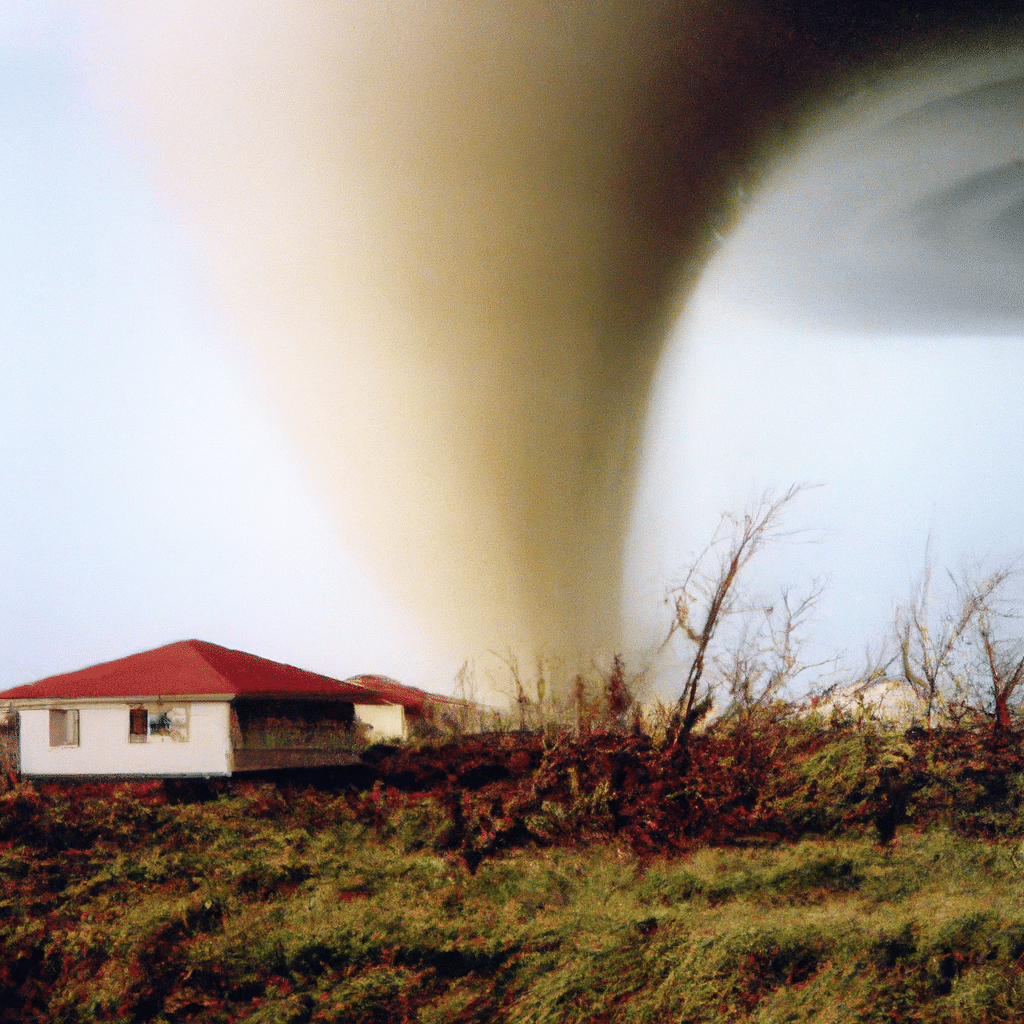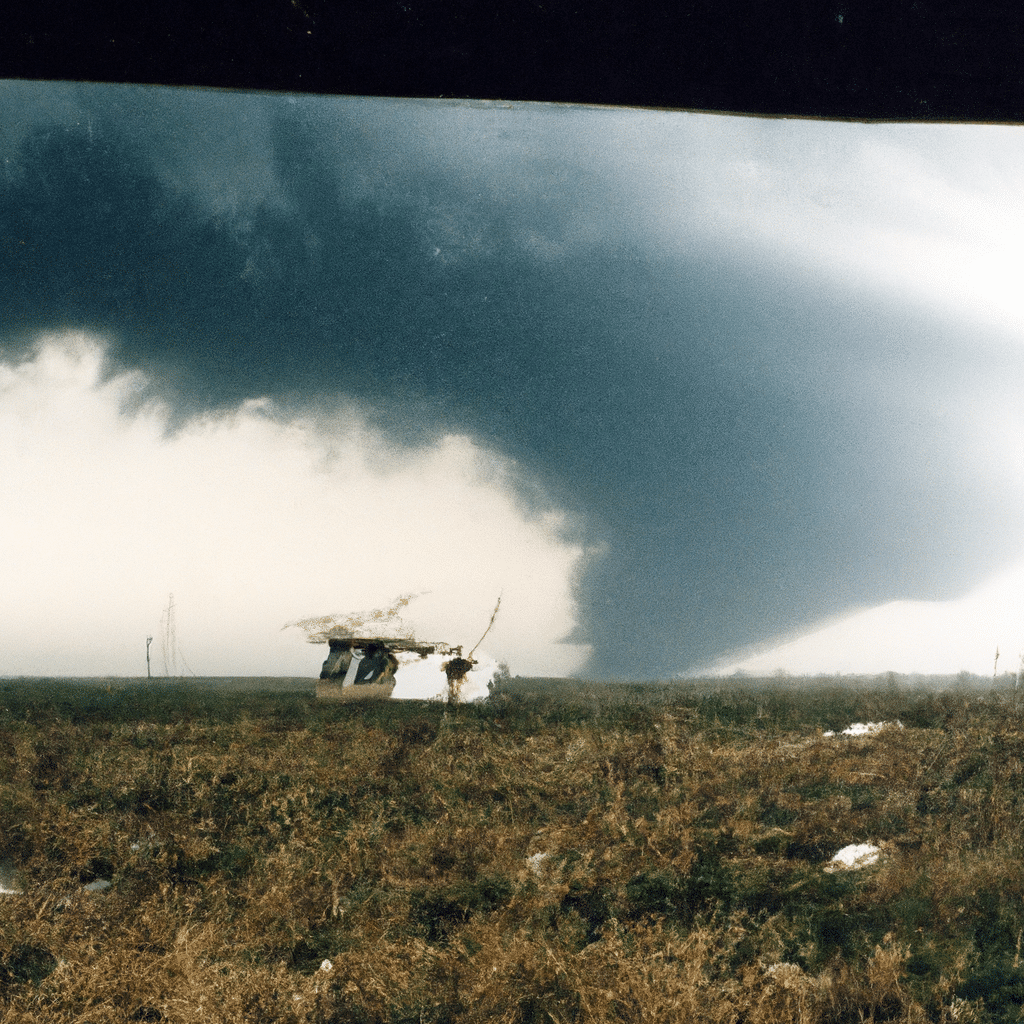So you’ve heard about the benefits of impact windows – how they can protect your home from hurricanes, reduce noise, and improve energy efficiency. But have you ever wondered if these sturdy windows can also stand up against the destructive force of a tornado? It’s a valid question, and one that many homeowners in tornado-prone areas may be asking. In this article, we will explore whether impact windows have what it takes to safeguard your home during a tornado, providing you with the peace of mind you deserve.

What are impact windows?
Impact windows, also known as hurricane windows or storm windows, are specially designed windows that are built to withstand the powerful forces and impacts of severe weather events such as hurricanes, strong storms, and even tornadoes. These windows are made using laminated glass and reinforced frames, which allow them to provide a higher level of protection compared to traditional windows. While impact windows are primarily designed to protect against hurricanes, many people wonder if they can also offer protection against tornadoes.
Understanding tornadoes
Before diving into the discussion on whether impact windows can protect against tornadoes, it is important to have a basic understanding of tornadoes. Tornadoes are violent and rapidly rotating columns of air that are in contact with both the surface of the Earth and a cumulonimbus cloud, which is the parent cloud that creates a tornado. Tornadoes are capable of inflicting significant damage and destruction, as they can produce extremely strong winds, ranging from 100 to over 300 miles per hour. These high-speed winds can easily tear apart structures, including windows, and pose a serious threat to human life and property.
The destructive power of tornadoes
Tornadoes are known for their destructive power and the havoc they can wreak on everything in their path. The force of a tornado can lead to the complete destruction of buildings and structures, leaving behind a trail of debris and devastation. One of the vulnerable areas during a tornado is windows, as the strong winds can create extreme pressure differentials that can cause windows to shatter or be blown out entirely. This not only exposes the interior of a building to the damaging winds but also puts the occupants at risk of being hit by flying glass shards and debris.
How do impact windows work?
Impact windows are specially designed to mitigate the damage caused by high-velocity winds and flying debris during severe weather events. These windows consist of multiple layers of laminated glass, which are bonded together with a strong interlayer. This construction creates a window that is incredibly strong and resistant to impacts. While a traditional window may shatter upon impact, an impact window has the ability to remain intact even when struck by large objects, such as tree branches or debris propelled by strong winds. The framing of impact windows is also reinforced to provide additional strength and structural integrity.

Testing and certification
To ensure the effectiveness and reliability of impact windows, they undergo rigorous testing and certification processes. Impact windows are subjected to various tests that simulate the forces and impacts experienced during severe weather events. These tests assess the windows’ resistance to high winds, flying debris, water infiltration, and structural integrity. The most recognized certification for impact windows in the United States is the Miami-Dade County product approval, as it has one of the most stringent testing protocols. Additionally, impact windows can also be certified by other reputable organizations, such as the American Society for Testing and Materials (ASTM) and the Florida Building Code.
Benefits of impact windows
Impact windows offer several significant benefits, which make them a popular choice for homeowners in hurricane-prone areas. Firstly, these windows provide increased protection against extreme weather events, such as hurricanes and strong storms. The laminated glass construction ensures that even if the window breaks due to impact, the glass will remain adhered to the interlayer, preventing the entry of wind, rain, and debris into the building. This feature not only helps protect the structural integrity of the building but also safeguards the occupants from the potential dangers associated with broken glass.
Moreover, impact windows provide sound insulation, helping to reduce outside noise and creating a more peaceful indoor environment. The laminated glass and reinforced frames also enhance the security of a building, as they are more difficult to break through compared to traditional windows. This added security can act as a deterrent to potential burglars and intruders. Additionally, impact windows offer energy efficiency by reducing heat transfer through the windows, leading to lower energy consumption and utility bills. They also provide UV protection, preventing the fading of furniture, carpets, and other interior elements caused by the sun’s harmful rays.
Understanding their limitations
While impact windows offer significant benefits and protection against severe weather events, it is important to understand their limitations. Impact windows are designed to withstand the forces of hurricanes and strong storms, which generally have predictable wind patterns. However, tornadoes are unpredictable and can generate highly erratic and turbulent winds that surpass the capacities of impact windows. The extreme pressures and suction forces associated with tornadoes can pose a challenge for any structure, including impact windows. Therefore, it is crucial to have a comprehensive tornado preparedness plan in place that includes seeking shelter in a safe location away from windows during a tornado warning.
Impact windows vs. tornadoes
Due to the unpredictable nature of tornadoes and the tremendous forces they generate, it is important to note that impact windows alone cannot guarantee complete protection against tornadoes. While impact windows are designed to withstand high winds and flying debris, tornadoes can produce wind speeds far beyond what impact windows are tested for. The rotating winds of a tornado and the debris carried within them can create intense pressure differentials and dynamic forces that even impact windows may struggle to withstand.
While impact windows can certainly offer some level of protection during tornadoes, they should never be relied upon as the sole means of protection. It is crucial to have a comprehensive tornado safety plan that includes seeking shelter in a designated safe room or storm shelter, away from windows and exterior walls. These safe spaces are specifically designed to withstand the forces and impacts associated with tornadoes and provide the highest level of protection for occupants.
Case studies
Several case studies highlight the importance of taking additional precautions beyond impact windows when facing tornadoes. In some instances, even buildings with impact windows have suffered significant damage or destruction due to the sheer intensity of a tornado’s winds. While impact windows may have helped to mitigate some of the damage, it is clear that seeking shelter in a designated safe space is the most effective way to protect against tornadoes.
Considerations when installing impact windows
When considering the installation of impact windows, there are several important factors to take into account. Firstly, it is vital to ensure that impact windows meet the local building codes and regulations of your area. Additionally, it is recommended to choose impact windows that are certified by reputable organizations, such as the Miami-Dade County product approval or recognized testing bodies. Proper installation of the windows is crucial to their effectiveness, so it is important to hire a qualified and experienced professional for the installation process.
Furthermore, it is essential to understand that impact windows can be a significant investment. While they offer numerous benefits, the cost of impact windows can be higher compared to traditional windows. However, the added protection, security, energy efficiency, and other advantages provided by impact windows often outweigh the initial investment for individuals living in hurricane-prone areas.
In conclusion, impact windows are an excellent solution for protecting against hurricanes and strong storms. While they can offer some level of protection during tornadoes, it is crucial to understand their limitations and not solely rely on impact windows for tornado protection. A comprehensive tornado safety plan that includes seeking shelter in designated safe spaces remains the best defense against the unpredictable and destructive forces of tornadoes.
